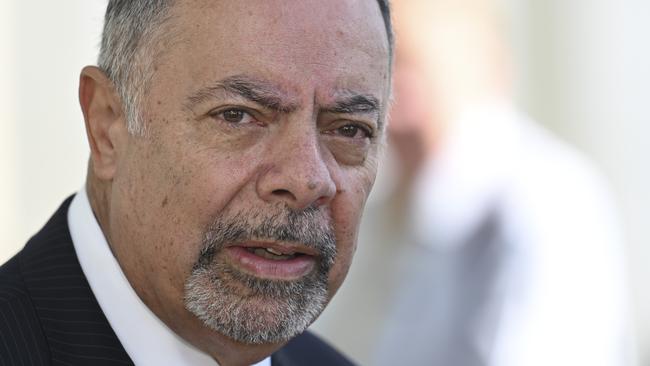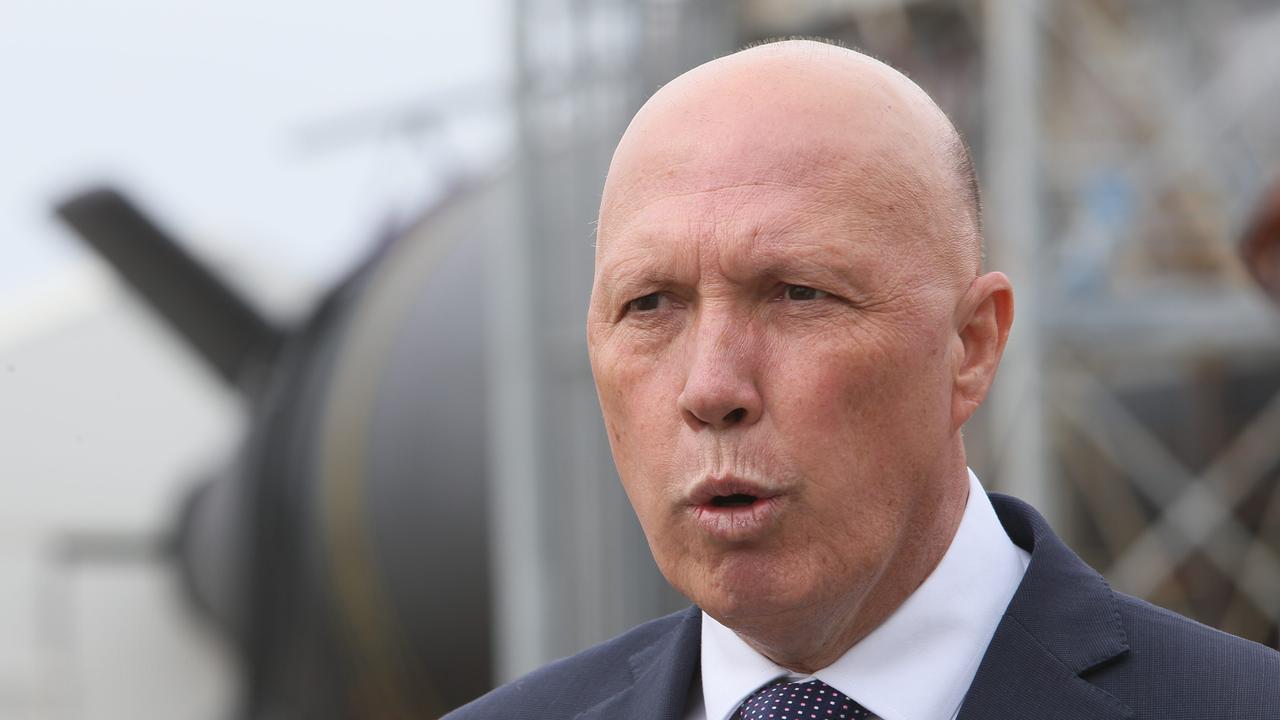Sexual violence in the spotlight of veteran suicide royal commission
Defence personnel convicted of sexual offences will be automatically discharged under sweeping recommendations made by the Royal Commission into Veteran Suicide.

You can now listen to The Australian's articles. Give us your feedback.
Defence personnel convicted of sexual offences will be automatically discharged under sweeping recommendations made by the Royal Commission into Veteran Suicide.
The three-year inquiry into veterans’ mental health has recommended the Australian Defence Force commence separate inquiries into sexual violence within the military and the weaponisation of the military justice system, in a bid to stamp out unacceptable behaviour including bullying.
The seven-volume report revealed high rates of bullying, harassment and violence, and recommended that the existing complaints management system and disciplinary processes should be improved.
The royal commission acknowledged the high incidents of sexual violence – including reports of gang rapes – within the military, which often went unreported due to victims’ fears of repercussions or fears their complaint would be met by an inadequate ADF response.
The report found 800 sexual assaults had been recorded within the ADF in the last five years, though 60 per cent of cases were not believed to have been reported.
In an effort to address the “devastating impact” sexual violence has had on current and former soldiers, the royal commission recommended any member convicted of sexual offences, including stalking and intimate image abuse, should be automatically discharged.
The ADF should also ensure that victims who report sexual assaults do not face adverse consequences and update existing systems to ensure that they cannot be deployed with their alleged perpetrator, the report recommended.
It noted that the ADF did not currently know how many members had been convicted of sexual offences, and recommended keeping records of all personnel who have convictions for such offences in civilian courts.
The royal commission also advised further research into the prevalence of military sexual trauma, including the link to suicide, should be conducted and data on sexual violence be published.
The report acknowledged that women were more likely to be the victims of sexual violence within the military than men, with ex-service women dying by suicide at double the rate of women in the broader population. It also noted that commanders had not been trained on how to respond to allegations when they emerge.
“Men and women serving in the ADF have signed up knowing they may be required to make the ultimate sacrifice for their country,” the report said. “However, for many members, the greatest source of danger comes from within the ADF itself.”
The commissioners advised that the inquiry into sexual violence within the ADF should be carried out independently and focus on the effectiveness of the military justice system compared to the civilian courts, the underlying drivers of sexual violence in Defence and the effectiveness of anonymous reporting.
“The “ongoing challenge” of high incidents of unacceptable behaviour was also addressed in the report, with a 2022 survey finding 33 per cent of men and 52 per cent of women who were permanent serving members had experienced inappropriate conduct the in the past year. The report highlighted shortcomings in administrative and disciplinary processes, including the significant discretion commanders have to determine and investigate matters, with little transparency. This has resulted in processes being subject to abuse, posing a risk to members’ mental health.
The report also addressed the role of the ADF Inspector-General in overseeing the justice system to ensure impartiality and fairness which has also fuelled the perception that the office is not independent from Defence, undermining confidence in its effectiveness.
“The ADF has yet to fully address the structural and cultural barriers to preventing and managing unacceptable behaviour,” the report says. “These include the role of leaders and the pressing need for complaints mechanisms outside the chain of command.”
The report urged the ADF to prioritise a separate inquiry into the weaponisation of the military justice system by the end of this year, after the royal commission heard accounts of commanders singling out members for minor infractions as a form of bullying. The royal commissioners – chair Nick Kaldas, Peggy Brown and James Douglas – urged Chief of the Defence Force Admiral David Johnston to prioritise an inquiry into the practice by the end of the year.




To join the conversation, please log in. Don't have an account? Register
Join the conversation, you are commenting as Logout